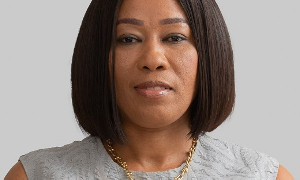President John Dramani Mahama as part of his three-day visit to the Eastern and Ashanti Regions, on Monday assured Ghanaians that his government had put measures in place adequate measures to contain the Ghana’s ballooning public debt.
Speaking on Garden City Radio in Kumasi, the President said state owned agencies will be made to pay for their own debts.
Unfortunately, it appears this isn’t the first time Ghanaians are hearing this assurance from government.
We cannot but agree with Economist Dr Eric Osei Assibey when he describes the government’s assurances as “lip service.”
Hear him: “Government from 2013 came out to say that it had established some measures to reduce our debt stock with the escrow accounts, infrastructure fund and other accounts but it’s not just about paying lip service to reducing the debt.”
Ghana’s total public debt rose to GH¢94.5 billion ($23.7 billion) by end-June, equivalent to 71 percent of gross domestic product (GDP).
Per information from the Bank of Ghana (BoG), government is this week issuing another three-year bond, the proceeds of which will be used to retire an earlier bond floated in April this year.
Our worry is not even the borrowing but the interest rate at which the country takes the loans.
We are informed that the three-year bond issued in April was floated at 23 per cent and per the existing economic conditions, and market conditions, we could be paying a higher interest on the bond.
Experts are worried over the ballooning debt, especially in cases of short-term debts, where the projects for which the loans were contracted are unable to pay back the debts owed.
Contrary to expectations of measures to tame the debt, government is eager to continue borrowing at very high interest rates to retire maturing debts.
Executive Director of the Centre for Policy Analysis (CEPA), Dr Joe Abbey has also added his voice, cautioning government to pull the breaks on borrowing.
“It is unwise for government to continue borrowing knowing the hard times the economy is going through,” he adds.
He calls on government to reduce its appetite for borrowing and deal with the twin deficits that have threatened the economy.
“You can’t borrow and spend more than you generate,” he stresses.
The Business Finder on October 8 published a story from our communication with an IMF spokesperson which story made it crystal clear that Ghanaians are responsible for the management of the debt.
The Fund said it could only advise and provide support within its programme with Ghana.
“At the end of the day, it is Ghanaians who will approve the borrowing or not,” he said.
The IMF has cautioned Ghana repeatedly to be selective with regard to new non-concessional borrowing as “such borrowing can escalate debt vulnerabilities.”
Opinions of Thursday, 29 October 2015
Columnist: thefinderonline.com















